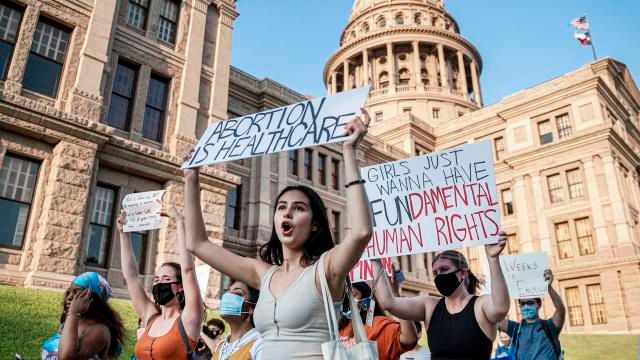Texas’ restrictive abortion law was found to be unconstitutional by a state district court judge on Thursday, who found that the state’s one-of-a-kind enforcement scheme, which allowed any private citizen to sue abortion providers or others accused of violating the law, violated the state’s constitution.
Judge David Peeples wrote in a 48-page opinion that the approach, which anti-abortion groups had hailed as its greatest strength, was unconstitutional because it granted standing to those who were not injured, denied due process, and represented a “unlawful delegation of enforcement power to a private individual.”
Abortion providers indicated on Thursday that they would not immediately begin conducting the surgery beyond roughly six weeks of pregnancy, despite the fact that it was regarded a significant triumph for abortion rights organisations.
In response to a series of cases filed in Texas state court by abortion providers and others against Texas Right to Life, an anti-abortion organisation that had pushed for the statute, the court reached its conclusion. On Thursday, the organisation filed a notice of appeal with the appropriate authorities.
After cardiac activity has been found, which normally occurs about six weeks of pregnancy, abortions are prohibited under Texas law, known as Senate Bill 8 or the “heartbeat legislation.” As a result of specifically forbidding state authorities from enforcing the legislation and relying instead on private citizens, the bill evaded the typical process of judicial examination and entered into effect in September after the United States Supreme Court refused to intervene.
As part of its review of a Mississippi statute, the Supreme Court is considering whether to issue a direct challenge to the 1973 ruling Roe v. Wade, which barred states from prohibiting abortions before foetal viability. After 15 weeks, or around two months before viability, the treatment is prohibited under Mississippi state law.
As a result of the possibility of legal action from any people against anybody who performs or “aids and abets” the operation in Texas, abortion providers, clinic personnel, and even those who provide transportation to the clinic, have said that they are complying with the new legislation.
Judge Peebles said in his judgement that the Texas Legislature did not have the authority, under the state’s Constitution, to enable anyone who had not incurred any harm as a result of a breach of the abortion ban to file a lawsuit against the state of Texas. His findings also included that giving rewards of “no less than $10,000” to those who were successful in their lawsuits violated the 14th Amendment to the United States Constitution’s guarantee of equal protection of the laws.
As a result, if the law’s delegating enforcement authority to private persons is upheld as constitutional, Judge Peebles noted that it may be applied to a variety of difficult subjects, including firearms, same-sex marriage, freedom of expression, and climate change.
In response to the verdict, abortion providers said that if the ruling is maintained by the State Supreme Court, they would resume delivering abortions beyond six weeks of pregnancy since the rule will not be enforced.
The number of abortions conducted in Texas dropped by about half in the weeks after the law’s implementation, a result that anti-abortion activists attribute to the law’s unusual structure.

